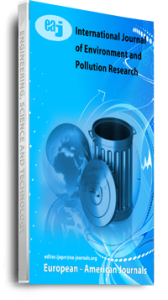The discharge of untreated wastewater into waterbodies results in water quality deterioration of the receiving waters. This study assesses the impact of abattoir wastewater discharge on the water quality of Orogodo River in Nigeria. Effluent discharges and water samples were collected from river at six points over a 6-month period. Physicochemical analyses were conducted using standard methods. The pH was within a fixed band of 5.56 – 8.04. The downstream biochemical oxygen demand of the receiving river water increased significantly to 75% in July and up to 192% in December. Suspended solids, chemical oxygen demand, total nitrogen and total phosphorus followed a similar trend. Dissolved solids, dissolved oxygen, nitrate, also increased appreciably. The downstream levels of these parameters were higher than their corresponding upstream values, indicating that the discharge of the abattoir wastewater into the river has negatively impacted the river water. The dilution of the waste in the river water was not enough to reduce them to acceptable levels. This study demonstrates that abattoir wastewater impacts Orogodo River water negatively. The abattoir effluent did not meet the National standard for effluent discharge into the environment leading to cross pollution of the receiving water based on the parameters investigated. This therefore, calls for the need to put an effective wastewater treatment and monitoring system in place to enforce existing legislations to curb water pollution and to safeguard both the environment and human health.
Keywords: Abattoir, Impact, Orogodo, Pollution, Water Quality, physico - chemical, wastewater

